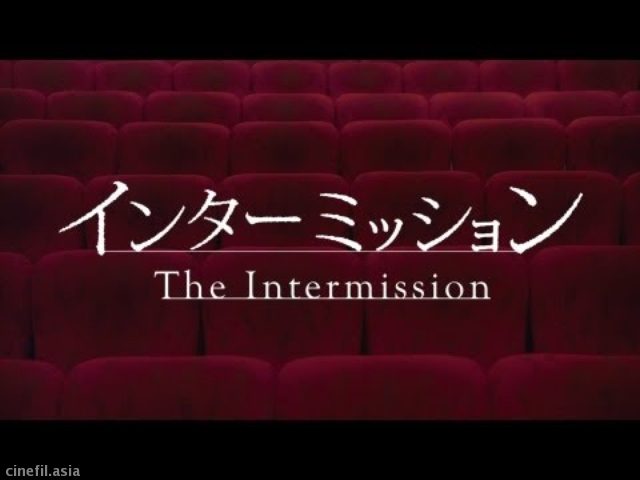
映画批評サイト「MIDNIGHT EYE」で日本映画を世界に紹介する著名なレビューアー、トム・メスが選んだ2013の12本。『インターミッション』樋口尚文『贖罪』黒沢清などが紹介されています。翻訳機能お使い下さい。
The Best (in no particular order):
A Woman and War (Senso to Hitori no Onna, dir: Junichi Inoue)
Acolytes of the late Koji Wakamatsu banded together to make this film that is entirely in keeping with their mentor’s tradition of provocatively mixing sex and politics, placing a finger on a spot that is still particularly sore: the domestic repercussions of Japan’s actions in World War 2. Adapted from Ango Sakaguchi’s novella, the film spotlights the sort of those on the home front in bombed-out Tokyo.
There Is Light (Kurayami kara Te o Nobase, dir: Yukihiro Toda)
Intended as a TV documentary for national broadcaster NHK, this wound up as a fiction feature starring swimsuit model Maya Koizumi s a prostitute who specializes in servicing the disabled. An unprejudiced approach to the unconventional subject matter help this stand out, as does the remarkable lead performance by Koizumi.
A Case of Eggs (Keranhanpan, dir: Yuri Kanchiku)
A salacious Japanese photographer (Jun Murakami) flies to Korea to shoot pretty girls, while his sexually repressed female translator can’t help but look on – and gradually thaw.
Penance (Shokuzai, dir: Kiyoshi Kurosawa)
Kurosawa’s four-hour plus TV miniseries deservedly saw itself released in cinemas internationally. A welcome return after the director’s nearly five-year absence in the wake of Tokyo Sonata – a film to which Penance also forms a thematic follow-up.
The Intermission (Intamisshon, dir: Norifumi Higuchi)
A tribute to a disappearing movie theatre becomes an evocation of countless wider social and political issues in a post-Fukushima Japan eager to bury one past in order to replace it with another, cleaner but altogether more dangerous version of history.
Winter Alpaca (Fuyu no Arupaka, dir: Yuji Harada)
Yuji Harada’s short films are mostly about people whose peculiar pastimes make them misfits, but who, often through a fateful encounter with a likeminded individual, ultimately find a tiny little place to call their own. Though he clearly operates in the Nobuhiro Yamashita vein of dry-witted comedy, from the evidence at hand, Harada’s particular strength lies in making you care for his misfits, no matter how peculiar their inclinations, like the dumpy, debt-ridden caretaker of the titular furry mammals in Winter Alpaca. He seems to be working with a stock company of actors, who adapt marvellously well to a variety of different characters, coming across as alternately threatening, nerdy, creepy, or kind - occasionally within the same film. Among them, actress Ayumi Nigo, lead of Winter Alpaca and the earlier Wall Woman (Kabe Onna), stands out, perhaps as a result of an immediately recognisable, atypical appearance that paradoxically makes her the perfect foil for Harada’s portrayals of a world that is uncaring but after all just big enough to accommodate every eccentricity. Winter Alpaca won Harada the Governor’s Prize at Yubari.
Uzumasa Jacopetti (Uzumasa Yakopetti, dir: Moriro Miyamoto)
If this were a list of the year’s weirdest films, Miyamoto’s unclassifiable second feature would easily take the top spot. The city of Kyoto has spawned an heir to Nicolas Roeg.
Abductee (Abudakuti, dir: Yudai Yamaguchi)
I’ve rarely cared for any of Yamaguchi’s previous works – those I’ve seen have always tended to feel like skits blown way out of proportion. With Abductee, however, he gives us mystery, tension, build-up, an effective use of limited space that never grows stale and a thoroughly unexpected denouement. Frequent second fiddle Yoichi Nukumizu has to carry almost the entire film by himself and does it magnificently well.
Sado Tempest (dir: John Williams)
A mixture of Shakespeare, Noh theatre, history lesson, science fiction and rock ‘n’ roll set on Japan’s centuries-old (and superbly photogenic) place of exile, the remote Northern island of Sado, this certainly grabs the title of most original film of the year. Better still is that it manages to have its disparate elements gel and keep the audience’s attention glued to its slow-burn storytelling. Thanks in no small part to a fine cast, with first-time actor Yasunori Henmi holding his own against a troupe of some of Japan’s finest screen thesps.
Soul Flower Train (dir: Hiroshi Nishio)
Discovered at this year’s Nippon Connection festival, Soul Flower Train serves up the Tokyo Story-esque premise of a father from rural Kyushu traveling to Osaka to visit his daughter, whom he hasn’t seen in several years. After he gets his pockets picked on the ferry, a young woman, herself a former pickpocket, steals his wallet back for him, then guides him through the city while they wait for the daughter to finish work. Good-natured and comical, it nevertheless manages some genuinely poignant moments, particularly a finale that could have gone grotesquely over the top but ends up deeply touching.
Sound Hunting (Oto o Karu, dir: Kenji Murakami)
Murakami delivers a final farewell to the 8mm format he employed so often throughout his unique career - though this being a Murakami film, you never can tell...
Beautiful New Bay Area Project (dir: Kiyoshi Kurosawa)
A hotshot young architect falls for a female construction worker he spots on the site of his latest megalomaniacal building project. A simple enough premise that Kurosawa, in the space of a lean thirty minutes, uses to turn in a film that is half Fritz Lang’s Metropolis and half Bruce Lee’s Game of Death, and yet is filled with numerous touches that are typically Kurosawa – and are in fact reminiscent of his early 8mm experiments. Beautiful New Bay Area Project also contains a revelation in the form of actress Mao Mita, who impresses with both her acting and her karate chops.
シネフィル アジア


 *REVOLVER
*REVOLVER


